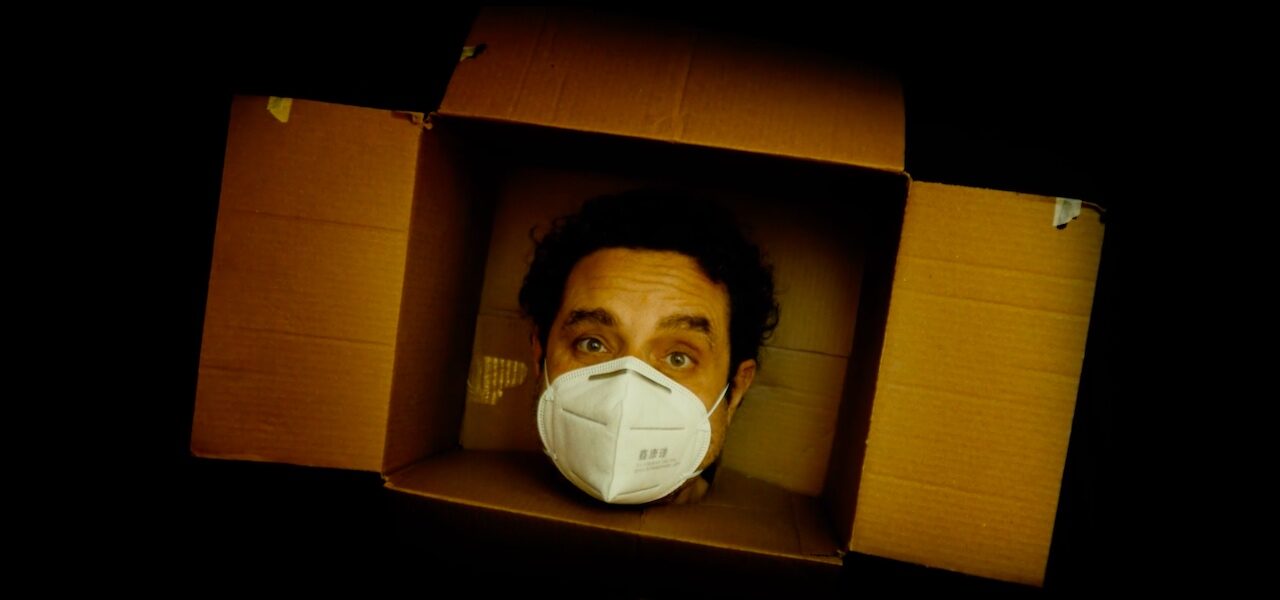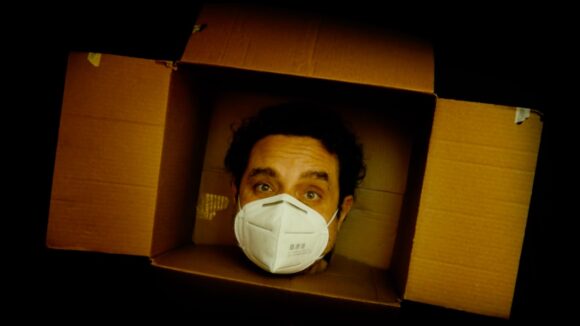

Theodore Ushev Shuts Himself Up In ‘Living In A Box’ (World Premiere)
During the lockdown, Theodore Ushev has finished three films and written two scripts. What have you done?
After the coronavirus hit, the famously prolific Bulgarian filmmaker and animator found himself cooped up in Montreal, where he has lived for the last few decades. One way he coped was by channeling his experience of confinement into a short no-budget film, using the materials at hand. The result is Living in a Box, which Cartoon Brew is exclusively premiering. Watch it below:
Brisk and light-hearted, Living in a Box sharply contrasts with Ushev’s last work, the Oscar-shortlisted The Physics of Sorrow (which is currently touring virtual festivals). That film was a somber, meandering meditation on migration, memory, and the relentless passage of time. But in Living in a Box, time comes to a standstill: the film closes on the image of a metronome’s manic tick slowing to a halt.
Is this how the lockdown has felt to Ushev? We put a few questions to him.
Cartoon Brew: Where did you make this film? Did you produce it entirely on your own, and how long did it take you to make?
Theodore Ushev: This production was absolutely DIY. In my studio, locked down. I got the idea one night. The next morning, I constructed the box, set down the camera, the mic, et voilà. That was my goal: to do a fast no-budget film, alone, isolated. It was like a challenge against the virus, the lockdown: that no matter what happens, and what condition we live in, cinema can still happen. Three days of shooting, three days of editing.
You haven’t worked much in pixilation before. Why did you choose this technique here?
As I’ve mentioned before, the technique in my films is always a secondary topic. I use a technique that fits the concept. In this case, pixilation was the only choice — to film myself, as a poor human being, locked in a box, trying to find sense in the madness. It was fast and cheap. My goal was to make my cheapest film ever.
The film is humorous. Does this reflect your state of mind during the pandemic?
Yes, when there is a tragedy around me, my mind always reacts the opposite — I start joking. The laughter saves us in tragic times, keeps away insanity.
Some artists have told me that the pandemic has helped their creativity, by giving them time, peace and quiet. Others say it has harmed their ability to concentrate on work. How has it affected you? Did it affect any other projects you were working on?
For the first time in ten years, I was able to concentrate for three months on my work, in my studio, without any interruption, without having to pack my bag, no flights, no airports, no festivals. It was a blessing, a paradise — I wanted to be like that forever! At the same time, I lost a great opportunity and possible funding. It ruined many contracts I had, was financially disastrous, slowed down the pre-production of my first feature-length live-action film, and so on …
But just like that, I had all the time I needed to finish three very experimental films that made me happy (including this one). I wrote and developed two scripts for my future projects. This pandemic reignited all my creative forces! And I even had the time to discuss philosophy and psychology classes with my daughter!
Has the experience of the pandemic taught you anything new about yourself? Will it change the way you work in any permanent way?
That I have to stop living the hectic life I used to have. I had the time to relax, to watch my reflections and thoughts pass under my balcony. And even to paint them. To slow down the tempo — like in this film — to a full stop.

.png)